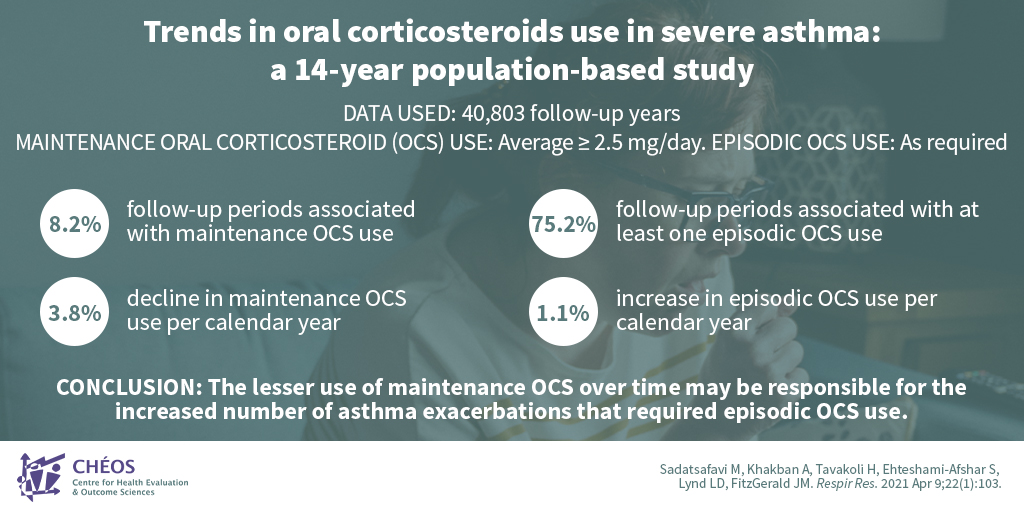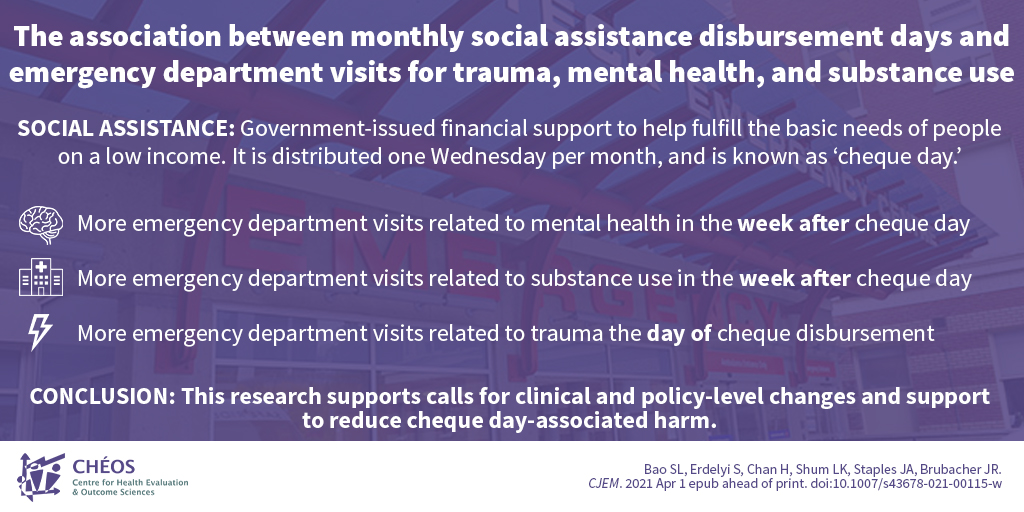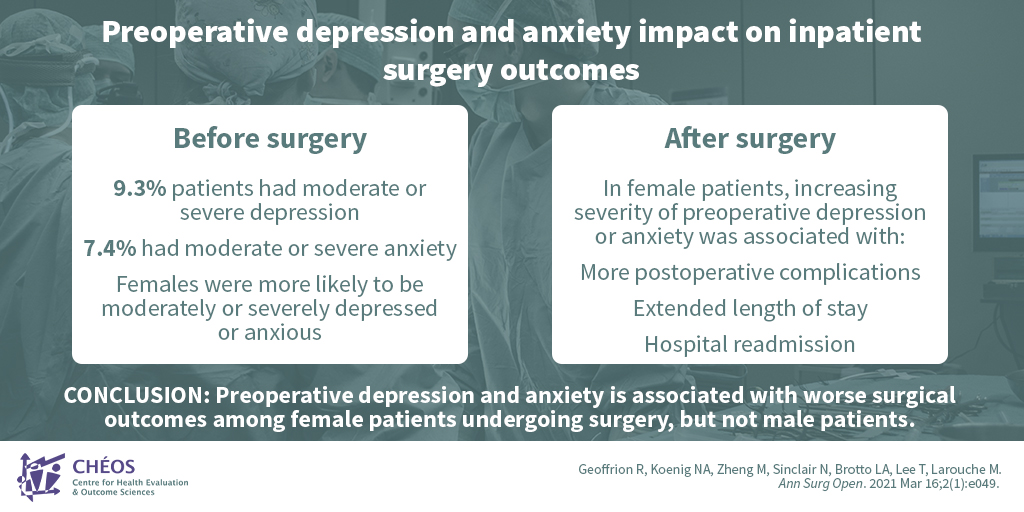The Evidence Speaks Series is a recurring feature highlighting the latest in CHÉOS research. This series features summaries of select publications and is designed to keep media and the research community up to date with CHÉOS’ current research results in the health outcomes field.
To ensure this research is quick and easy to share, we are now providing social cards that you are free to save and use as you see fit.
Decline in the use of oral corticosteroids as a maintenance treatment in severe asthma
Sadatsafavi M, Khakban A, Tavakoli H, Ehteshami-Afshar S, Lynd LD, FitzGerald JM. Trends in oral corticosteroids use in severe asthma: a 14-year population-based study. Respir Res. 2021 Apr 9;22(1):103.
Oral corticosteroids (OCS) are a key part of severe asthma treatment. CHÉOS Scientist Dr. Larry Lynd joined colleagues from UBC’s Respiratory Evaluation Sciences Program to describe the trends in OCS use in severe asthma patients. Using B.C. administrative health data from 2000–2014 as a source, 21,144 asthma patients contributed 40,803 years of follow-up data. They noted that 8.2% of follow-up periods were associated with maintenance OCS use (receiving on average ≥ 2.5 mg/day) and 75.2% were associated with at least one episode of OCS use (episodic use). There was a downward trend in maintenance use over time, but an upward trend in episodic use. The results indicate that the decreased use of maintenance OCS over time may be responsible for the increased number of asthma exacerbations that required episodic use. This trend may be explained by changes in patient and provider preferences or perhaps due to changes in the epidemiology of severe asthma.

Monthly social assistance disbursement linked with more substance- and mental health-related visits to the emergency department
Bao SL, Erdelyi S, Chan H, Shum LK, Staples JA, Brubacher JR. The association between monthly social assistance disbursement days and emergency department visits for trauma, mental health, and substance use. CJEM. 2021 Apr 1 epub ahead of print.
Social assistance is government-issued support for people with low income. In B.C., it is distributed on the third or fourth Wednesday of the month, often called “cheque day.” CHÉOS Scientist Dr. John Staples and researchers from UBC recently investigated the association between monthly cheque provision and the number of visits to the emergency department for trauma, mental health, or substance use reasons. The researchers found that there was a notable increase in substance use- and mental health-related visits to the emergency department in the week after cheque provision (relative risk [RR]: 1.07). Furthermore, more people presented to the emergency department due to trauma on the day of cheque provision, but not other days of the week (RR: 1.05). The results could help inform policy changes to reduce harm faced by people following cheque distribution.

Females with anxiety and depression may experience worse surgical outcomes
Geoffrion R, Koenig NA, Zheng M, Sinclair N, Brotto LA, Lee T, Larouche M. Preoperative Depression and Anxiety Impact on Inpatient Surgery Outcomes. Ann Surg Open. 2021 Mar 16;2(1):e049.
A team led by CHÉOS Scientist Dr. Roxana Geoffrion and including CHÉOS Statistician Dr. Terry Lee recently analyzed the potential association between preoperative depression and anxiety and postoperative outcomes, and determined if these outcomes differed between sex. A total of 1061 patients were recruited from surgical preadmission clinics at one hospital, among whom 455 males and 486 females had both preoperative and postoperative data available. The research indicated that females were more likely to be depressed or anxious before surgery than males. They determined that anxiety and depression, as measured via questionnaires, increased the chance of postoperative complications, extended length of stay, and/or hospital readmission in females but not males. As such, they concluded that preoperative depression and anxiety were associated with worse surgical outcomes in female patients.




